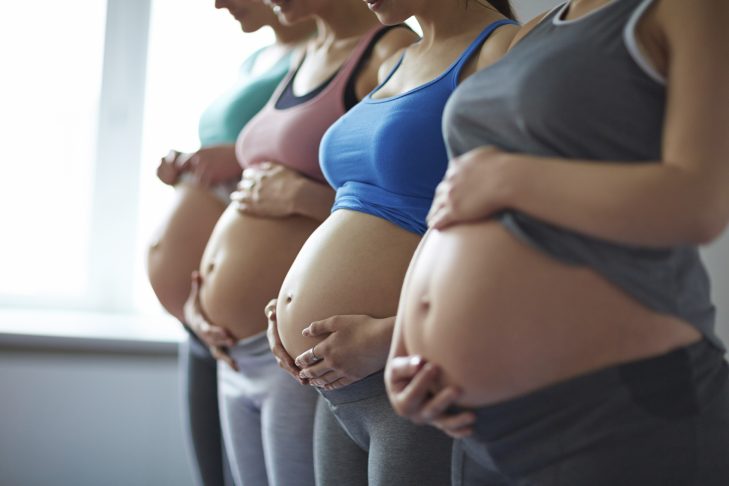As anyone who’s tried to get pregnant without quick success will tell you, trying for a baby isn’t a “presto” moment at all. It’s month after month of hope and then disappointment when those telltale cramps arrive, followed by low-grade anxiety and, over time, an escalation to genuine fear and bitterness when everyone seems to be pregnant except you. We can control so much in our lives, but one of our biggest choices is left to chance.
Or is it? Boston University reproductive and perinatal epidemiologist Lauren Wise is the principle investigator of PRESTO, a sweeping web-based research study that examines how lifestyle factors like diet, exercise and medication impact fertility and pregnancy.
Her study has grown into the largest of its kind since launching in 2013. It’s the first one to enroll couples pre-conception using Internet-based methods (like social-media advertising), and it’s the largest pre-conception study of men in the entire world. Wise is also involved in a sister study, based in Denmark.
Her research is personal. Wise, who was older when she got pregnant for the first time, says she understands the agitation, uncertainty and shame that comes with trying to conceive.
“I [can’t] say for sure that my Jewish background has really shaped my interest in fertility, though I certainly know what it’s like to have a Jewish mother constantly asking you when you are going to get married and have kids! To the extent that our study recruitment methods recognize this challenge, by inviting participants to enroll in a very discreet manner via the Internet, I think my Jewish background has certainly helped,” she says.
Couples 21-45 can enroll online and commit to filling out a series of lengthy medical and lifestyle questionnaires every two months for a 12-month period or until they get pregnant. There are incentives, like the chance to win iPads and other goodies, with participation. Plus there’s catharsis, too, in helping to achieve answers to a process that often feels like a riddle, especially with age. Roughly one in eight couples has trouble getting pregnant, according to the Centers for Disease Control and Prevention. Infertility is defined as not getting pregnant after a year of unprotected sex (or six months after age 35).
“It was a question for me, and a lot of other women think about this: How important is it to start trying early, balancing a career, et cetera? I’m interested in women who delayed childbearing: What can they do to enhance fertility? Eat better? Anything modifiable? There are a lot of unanswered questions and we wanted to put some more careful research into it,” Wise says.
And, yes, Wise has unearthed some interesting results thus far. A few takeaways:
Put down the soda, please
This post has been contributed by a third party. The opinions, facts and any media content are presented solely by the author, and JewishBoston assumes no responsibility for them. Want to add your voice to the conversation? Publish your own post here. MORE



